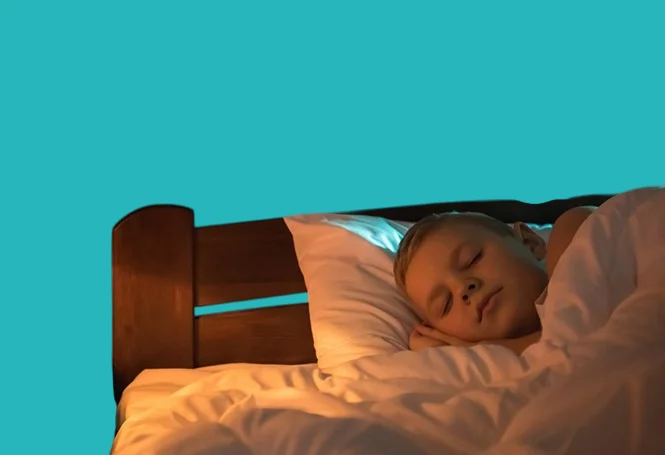Sleep is one of the most important needs for a child's mental, physical, and psychological development. Therefore, it is preferable for children to go to bed early, at consistent times, and for a sufficient number of hours.
However, some parents are negligent in regulating their child's sleep schedule, ignoring the potential harm. Therefore, in this article, we will discuss the most important negative effects of staying up late on children.
What are the negative effects of staying up late on children

The negative effects of staying up late affect a child's physical and mental health, and can be observed in:
- Weight gain.
- Mood swings.
- Weakened immunity.
- Delayed physical development.
- Poor concentration and attention span.
- Lethargy and fatigue.
- Pale complexion and dark circles under the eyes.
The Importance of Sleep for Children
Children's bodies need sufficient sleep because it helps in the secretion of hormones responsible for muscle and bone growth, improves memory, and increases academic performance.
Sleep also calms the child's mood and promotes emotional stability, strengthens their immune system, and provides them with enough energy and vitality to complete their day.
Negative Effects of Staying Up Late on a Child's Brain
Staying up late negatively affects a child's brain, and these effects include:
- Lack of attention.
- Difficulty understanding.
- Poor concentration.
- Low academic achievement.
- Difficulty remembering information.
Negative Effects of Staying Up Late on a Child's Body
Among the biggest negative effects of staying up late on a child are those that appear on their body, including:
- Pale complexion.
- Feeling lethargic.
- Delayed physical development.
- Dark circles under the eyes.
- Weakened immunity and increased susceptibility to illness.
- Weight disorders in the child due to hormonal imbalances.
Negative Effects of Staying Up Late on a Child's Psychology
The negative effects of staying up late on a child's emotional stability include:
- Excessive irritability. Lack of desire to play.
- Feeling anxious and stressed.
- Crying without a clear reason.
- A desire for introversion and social isolation.
How many hours of sleep does a child need
The appropriate number of hours of sleep varies for each child depending on their age:
- Infants aged 1-12 months: 14 to 17 hours of sleep.
- Children aged 1-3 years: 12 to 14 hours of sleep.
- Children aged 3-5 years: 10 to 13 hours of sleep.
- Children aged 6-12 years: 9 to 12 hours of sleep.
- Children aged 13-15 years: 8 to 10 hours of sleep.
Can a child's lack of sleep lead to illnesses
Yes, of course, a child's lack of sleep for a long period leads to illnesses and complications as a result of disturbances in many of the body's hormones, which can lead to early onset of high blood pressure.
It also leads to stomach and intestinal disorders, sleep disturbances, a severely weakened immune system, and increased susceptibility to infections.
Some tips to help your child sleep

A child needs a consistent sleep routine to help them avoid staying up late and prevent insomnia. Here are some additional tips:
- Use dim lighting to encourage the body to produce the sleep hormone.
- Encourage the child to play and be active during the day.
- Avoid screens for an hour before bedtime.
- Avoid drinking stimulants or carbonated drinks.
- Prepare the room for sleep and make it dark.
- Set a fixed time to wake up every day.
Frequently Asked Questions
What are the most prominent sleep problems in children
The most prominent sleep problems are difficulty falling asleep, insomnia, nightmares, and sometimes bedwetting.
What are the symptoms of lack of sleep in children
Symptoms of sleep deprivation include poor concentration, increased irritability in the child, digestive problems, weight changes, and paleness of the face.
When is a child's sleep considered abnormal
When the child has difficulty falling asleep, wakes up frequently during the night, experiences insomnia, or sleeps fewer than the recommended number of hours.
Which vitamin deficiency causes sleep problems
Vitamins B12 and D are among the vitamins that most affect sleep and cause sleep disturbances.
Article Summary
Staying up late is a harmful habit for children, both physically and mentally, as it causes sleep disturbances, weakens their immune system, and impairs their concentration.
Therefore, it is important for parents to establish consistent sleep schedules for their children and ensure they do not stay up late to avoid the resulting negative effects.